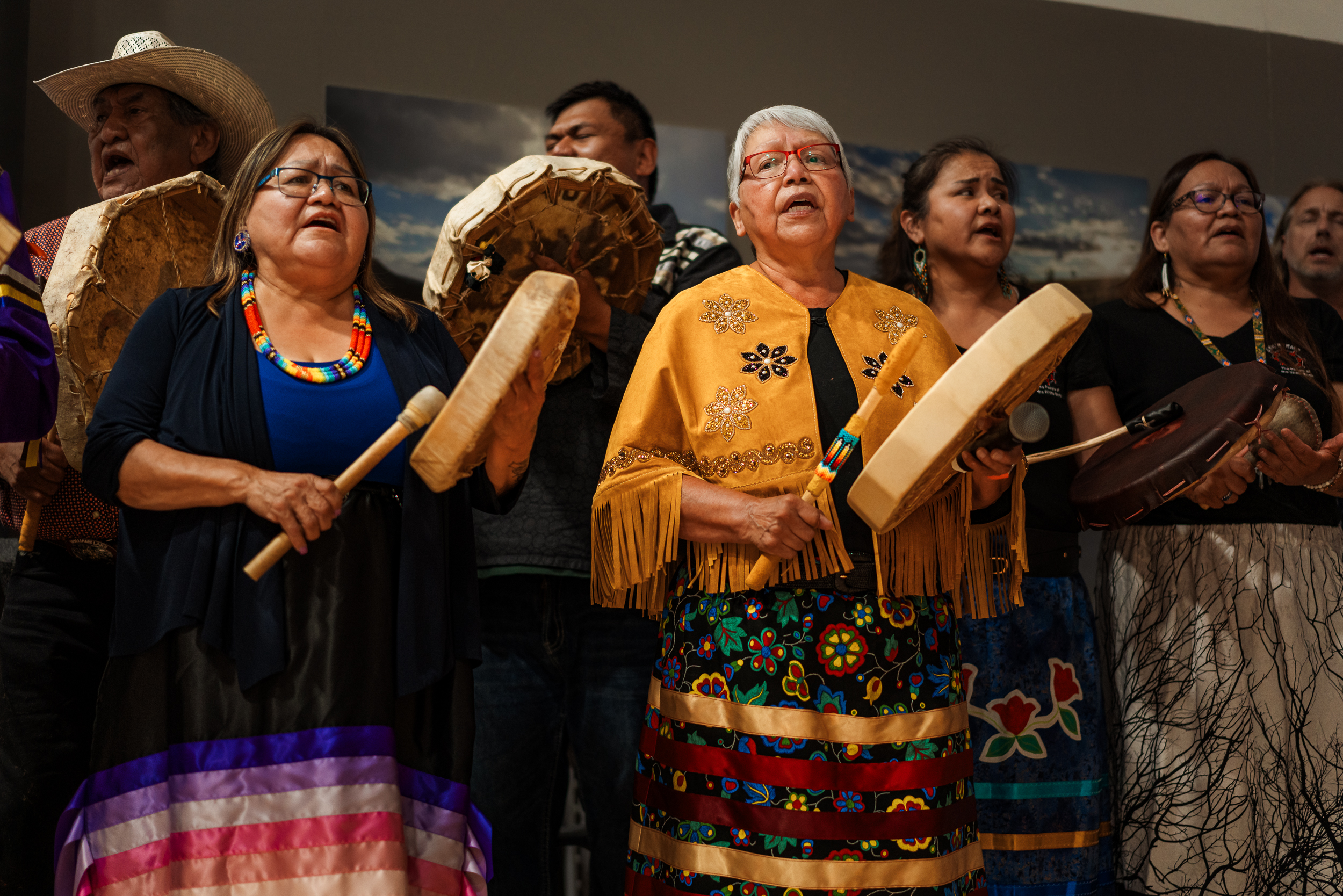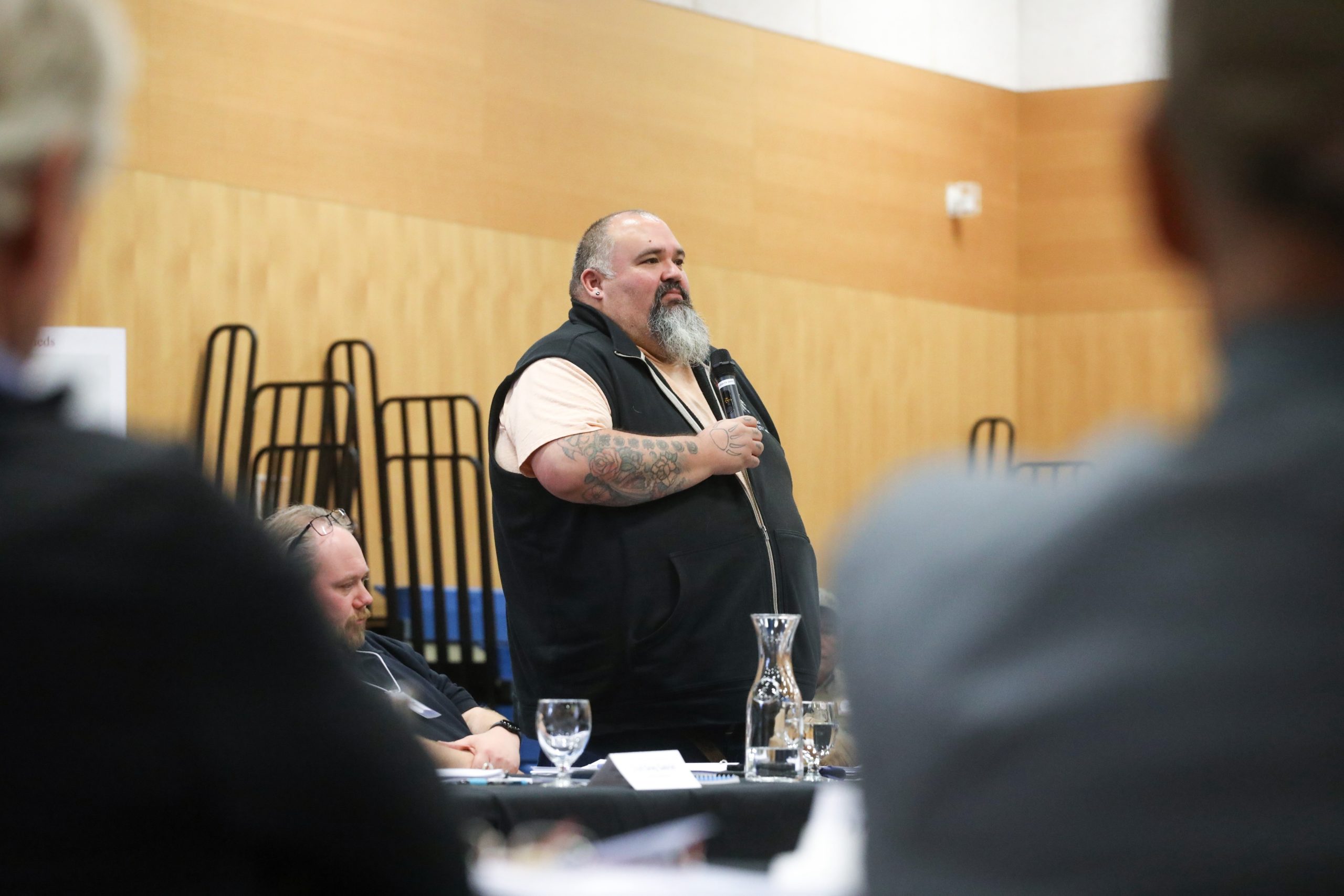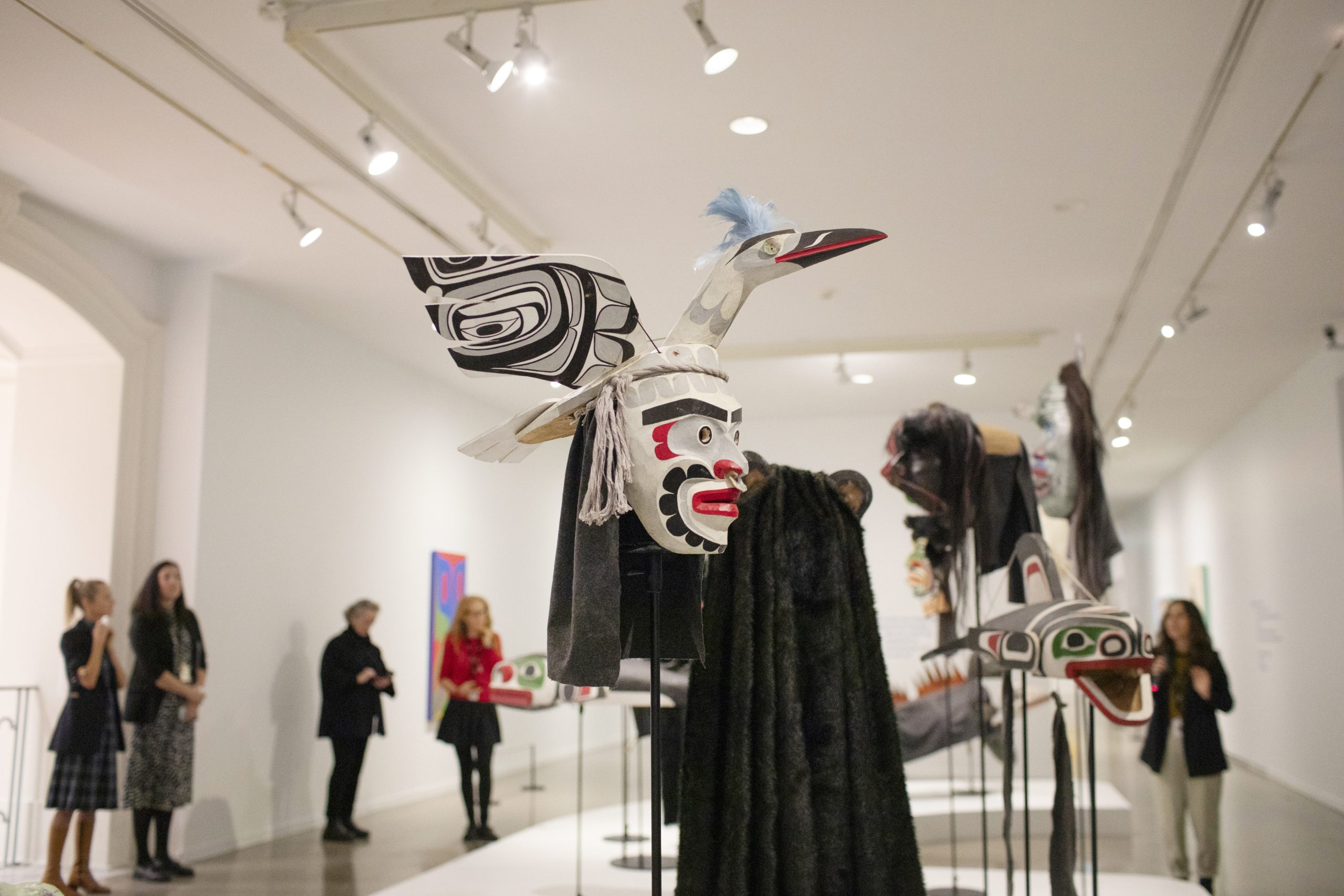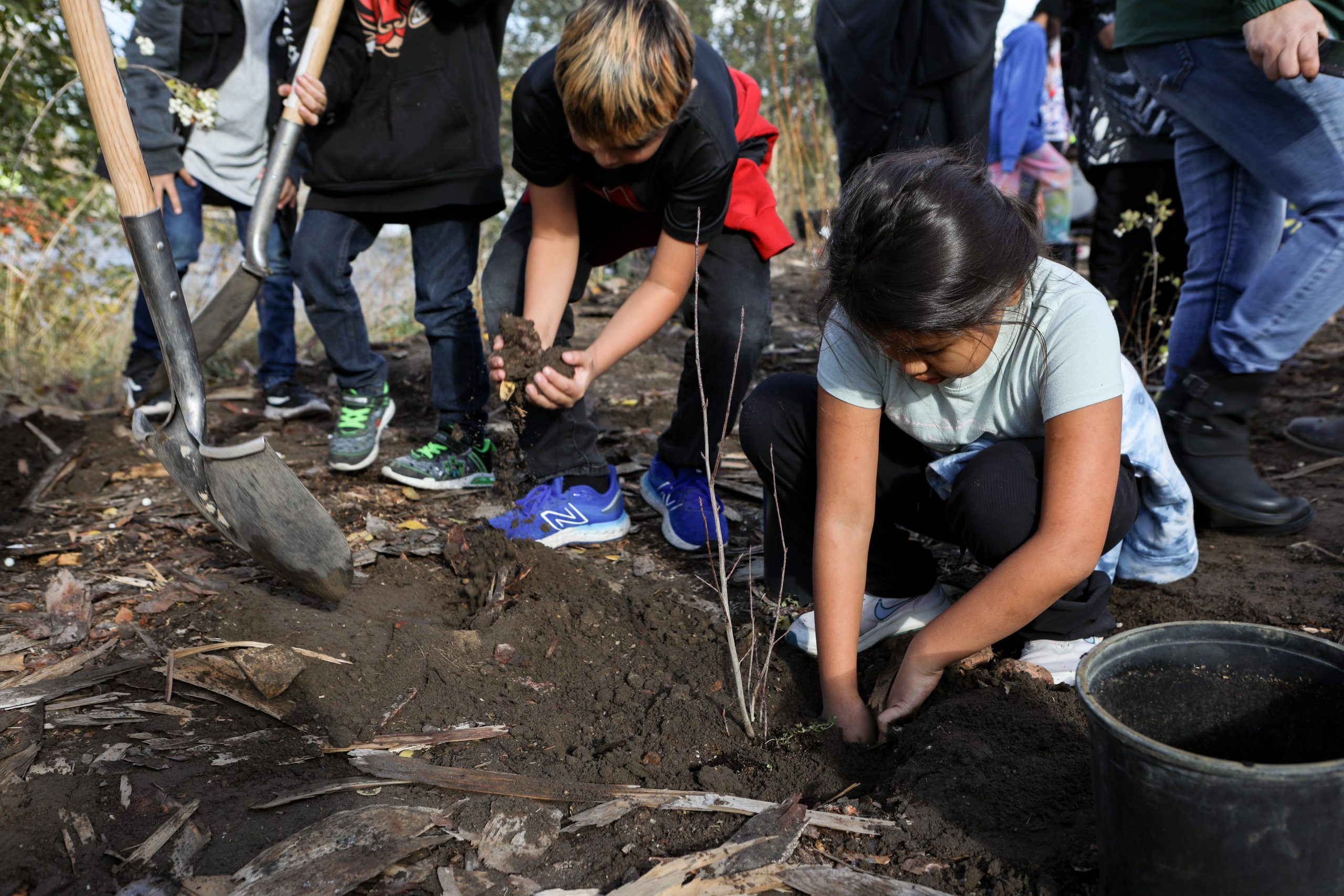Supreme Court of Canada unanimously affirms Indigenous jurisdiction over child welfare
The decision, released Friday, was widely celebrated while advocate noted colonial governments now must do their part to provide support to implement the ruling


Indigenous leaders are celebrating after the Supreme Court of Canada unanimously upheld a law that affirms First Nations, Inuit and Métis jurisdiction over child welfare.
“In our view, the Act [Respecting First Nations, Inuit, and Métis Children, Youth and Families] protects the well-being of Indigenous children, youth and families by promoting the delivery of culturally appropriate child and family services and, in so doing, advances the process of reconciliation with Indigenous peoples,” says the top court’s ruling released Friday morning.
The federal Act, also referred to as Bill C-92, was implemented on January 1, 2020 as a way to address the overrepresentation of Indigenous children in “care” across the country. It affirms that Indigenous peoples have an inherent right to jurisdiction of child and family services, and sets out minimum national standards of care.
The court’s decision was widely welcomed by First Nations, Inuit and Métis groups, with many leaders expressing the importance of communities deciding how their children are cared for.
“First Nations have never surrendered their jurisdiction over their children and families, which has existed since time immemorial,” said Assembly of First Nations (AFN) National Chief Cindy Woodhouse Nepinak in a statement.
“First Nations continue to have the inherent and constitutional right to care for our children and families, along with our sacred rights from Creator to raise our children surrounded by our cultures, languages, and traditions.”
Grand Chief Stewart Phillip of the Union of BC Indian Chiefs also lauded the ruling, saying it “ends the colonial era of Canada and the provinces controlling Indigenous child welfare.
“Our inherent right to protect our children and to hold them within their families and communities is reaffirmed.”
Decision upholds Indigenous laws
Kirsten Barnes, a lawyer with the BC First Nations Justice Council, said that while the Act itself is imperfect, it does offer a pathway for Indigenous communities to assert their right to self-determination regarding the well-being of their children and families.
“What we are dealing with is a brand new landscape whereby multiple laws are being revitalized and no two Nations’ laws, needs, and solutions look exactly the same,” she said.
“The Supreme Court of Canada’s unanimous decision to uphold the Act ensures that the work already started by many First Nations toward jurisdiction can continue.”
In December 2019, “Quebec” opposed Bill C-92 by submitting a question to its Court of Appeal (QCA), asking whether the Act had overstepped “Canada’s” constitutional authority.
“Aboriginal governance can result only from delegations of legislative powers, agreements between governments and Aboriginal peoples, or a constitutional amendment,” said the Attorney General of Quebec in the Court of Appeal. He was of the view that “section 35 of the Constitution Act, 1982 does not recognize a right to Aboriginal self-government, and that the 2020 law wrongly infringed on provincial jurisdiction.
In 2022, the QCA affirmed federal jurisdiction, but found sections 21 and 22(3) of the Act to be unconstitutional as the sections supposedly went beyond the authority granted to Parliament under the Constitution Act of 1867.
These two sections affirm that “Canada” has jurisdiction to delegate the force of federal law to Indigenous governments.
Both “Quebec” and “Canada” appealed the QCA’s decision. “Quebec” argued that the Act is wholly (not partially) unconstitutional, while “Canada” argued the contrary, that the Act is entirely constitutional.
Friday’s Supreme Court decision dismisses Quebec’s appeal and upholds that Indigenous laws will prevail over any conflicting provincial laws.
“To this end, the Act seeks “to achiev[e] reconciliation with First Nations, the Inuit and the Métis through renewed nation-to-nation, government-to-government and Inuit-Crown relationships based on recognition of rights, respect, cooperation and partnership,” the higher court wrote.
UNDRIP ‘seems to be what’s driving the court’: lawyer
The First Nations Child and Family Caring Society, which has been an intervenor throughout both the appeal and the Supreme Court of Canada case, said in its response to the appeal that despite its shortcomings, the Act is a first effort at “legislative reconciliation.”
Naiomi Metallic, who was part of the legal team that represented the Caring Society, said that the Act, and Canada’s ability to affirm it, will be a useful tool moving forward for reconciliation in other areas. “There’s some really good stuff in terms of setting us up for further cases that are coming down the line soon.”
The decision also points — several times — to its dedication towards UNDRIP. “It seems to be what’s driving the court,” says Metallic, who is from the Listuguj Mi’gmaq First Nation and is an Associate Professor of Law at Dalhousie University. “They’re tying themselves to UNDRIP.”
As it stands, there’s no obligation within the Act for the federal government or provincial governments to fund the implementation of Indigenous laws. But Metallic believes the Supreme Court’s decision will help put the pressure on Canada. “They’re binding themselves to the implementation,” she says. “[The Act] doesn’t yet answer all of the questions, but it gives us the important tools to keep having that conversation and to keep pushing the government forwards.”
In the decision, the court references a statement from Seamus O’Regan, Minister of Indigenous Services, during a House of Commons debate in 2019.
“Now is the time to follow through on our promises to Indigenous children, families and communities. Our promise is that the same old broken system that needlessly separates so many children from their families, that removes them from their culture, that cuts them off from their land and their language, not be allowed to continue and that we affirm and recognize that Indigenous families know what is best for Indigenous children.”
Cindy Blackstock of the Caring Society, a longtime advocate for justice in child protection, put the onus back on colonial governments to ensure the decision can be enacted.
“Today, the ancestors, the children and youth who went to residential schools and those who did not make it home, the 60s Scoop survivors, the children and youth in and from care today, and the Indigenous adults who love them, inspired the Supreme Court to ask more of itself and it delivered,” she said in a statement.
“Now it is up to the provincial, territorial and federal governments to make sure they provide the resources and supports needed for First Nations, Métis and Inuit children and youth to grow up safely at home, get a good education, be healthy and proud of who they are.”
Author
Latest Stories
-
‘Truth, courage, care’: Esk’etemc leader honoured with ‘B.C.’ reconciliation award
Charlene Belleau has been ‘leading voice’ of justice for survivors — documenting truth and supporting community healing
-
Across the border, Indigenous fears spike amidst ‘U.S.’ immigration crackdown
With ICE operations, multiple First Nations warn members about travel risks — despite treaty rights. Why Indigenous communities are on the frontlines defending rights for all












